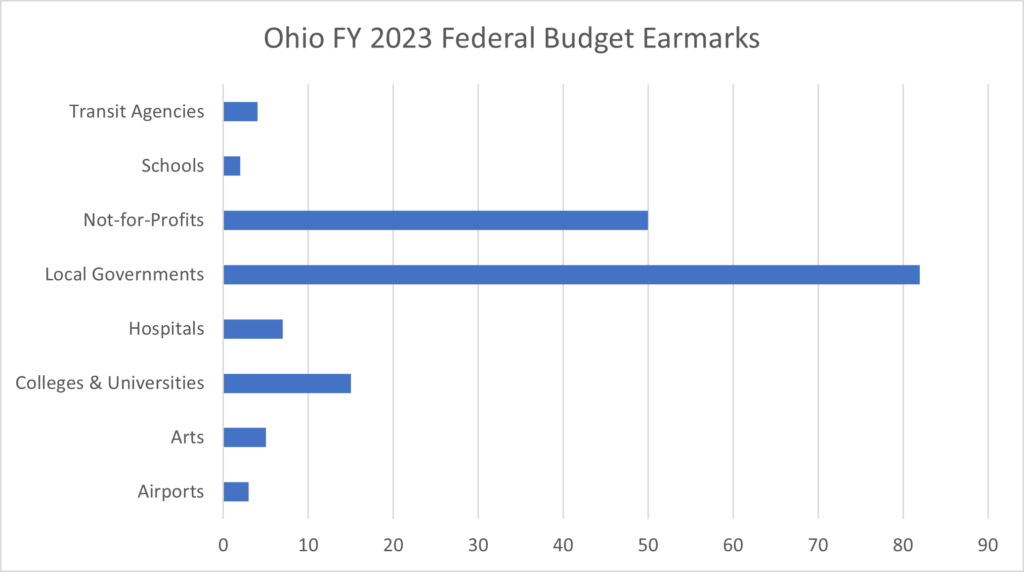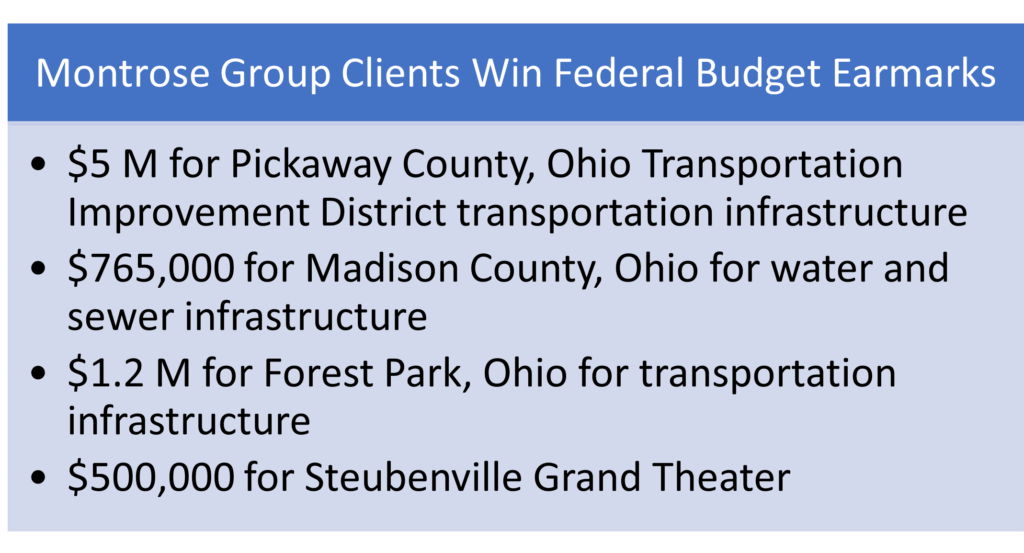The passage of a $1.7 T federal spending omnibus bill at the close of the 117th Congress recently gave signs of continued life for federally directed spending (aka earmarks). The omnibus legislation passed the U.S. Senate with overwhelming support and contained funding for a wide range of federal government agencies.
The federal spending omnibus also contained a reported 7200 federal budget earmarks added by individual members of Congress to direct spending of federal agencies for specific projects that could have totaled $15 B in spending. $15 B in spending for a $1.7 T bill is not a lot of funding but it could provide critical funding for community projects across the United States. In Ohio, 173 federal budget earmarks were awarded to projects in the state of Ohio across the state totaling $257 M that was awarded to airports, arts groups, colleges and universities, hospitals, local governments, not-for-profits, schools and transit agencies as outlined in the chart below.

Montrose Group was successful in gaining several federal budget earmark projects in the state of Ohio through the project development, identifying other local and state government and private sector funding for these projects, building community support for these projects, developing project applications and coordinating briefings with Ohio based members of Congress.

An even more important sign for the success of earmarks in the upcoming 118th Congress is the failure of the U.S. House Republican Conference to adopt a rule that prohibited earmarks. This vote sends a sign that will some conservatives are opposed to federal budget earmarks they have support from a majority of the members of the slim Republican majority and a large majority of the soon-to-be minority Democrats in the U.S. House of Representatives
House and Senate rules require earmark requests to be publicly disclosed, be for public or not-for-profit organizations and submit applications to individual U.S. House and Senate members. Applications will be due early in 2023 so communities and not-for-profits should be getting ready now to apply for earmark funding and start the lobbying process.
Please contact Dave Robinson at [email protected] if you have any questions regarding seeking federal budget earmarks.